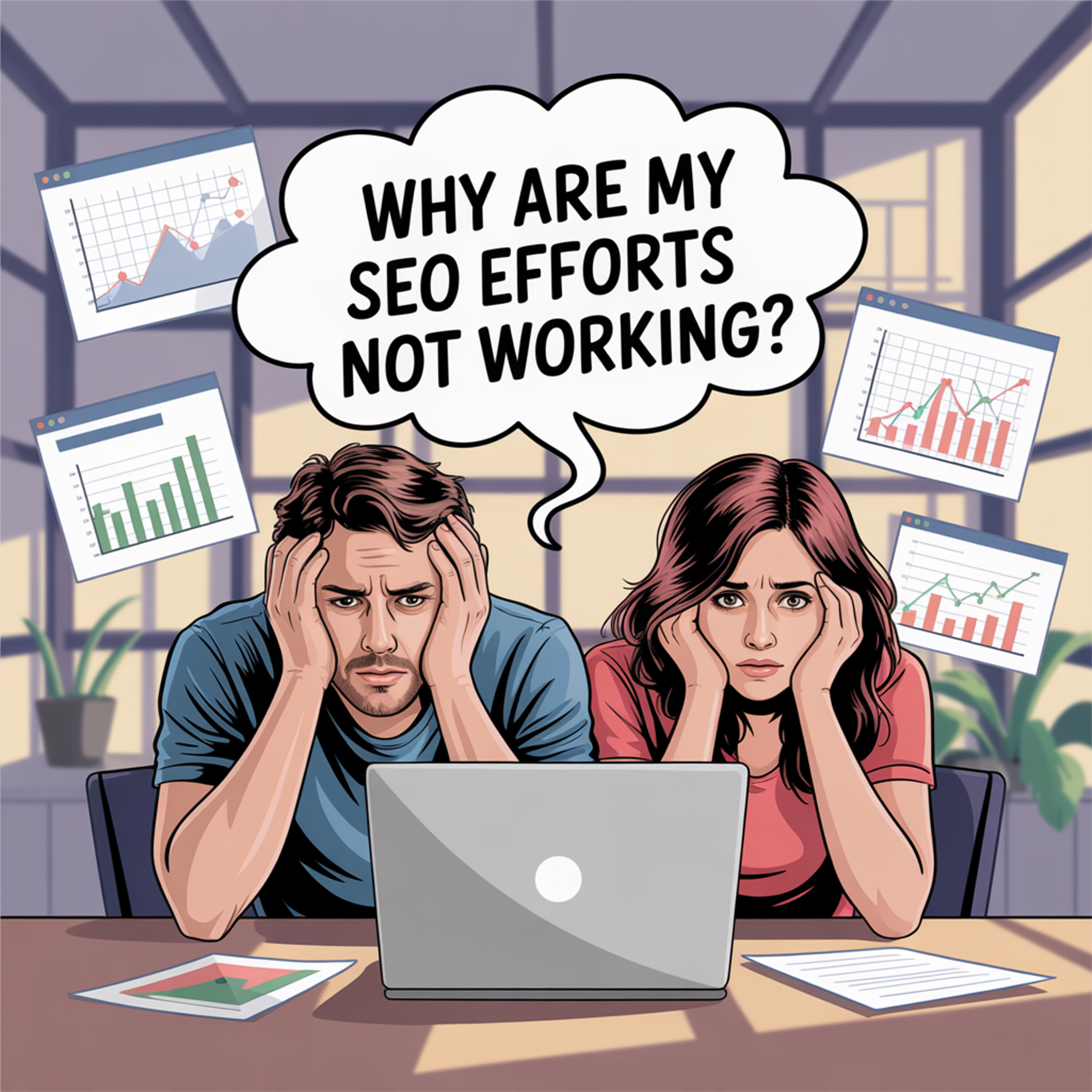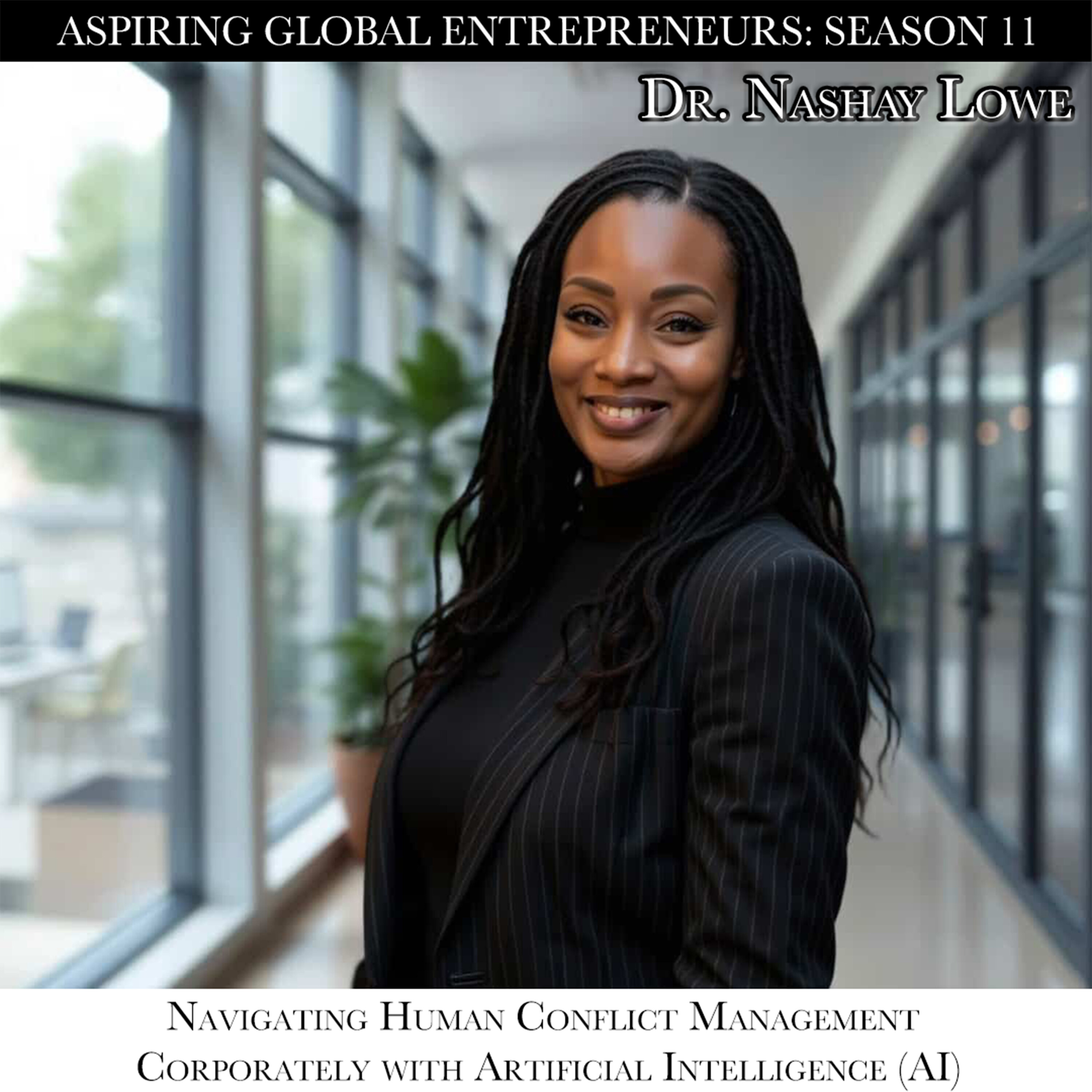This Clubhouse session features offering advice on Search Engine Optimization (SEO), particularly for small businesses. Favour explains that effective SEO involves consistent effort and strategy, likening it to a conversation where businesses answer frequently asked questions.
He suggests creating diverse content formats, like long-form "pillar" blog posts supported by shorter "cluster" content, and emphasize the importance of localizing content for brick-and-mortar businesses.
The discussion also touches upon tools like Semrush and Ahrefs for SEO analysis, while advocating for a "mindset, skillset, toolset" approach to digital marketing, stressing that understanding fundamental principles and consistent application are more crucial than expensive tools alone.
Favour illustrates concepts with real-world examples and interactive exercises, encouraging listeners to apply the strategies themselves to improve their online presence and drive organic traffic.
AD BREAK: Get 20% off your first booking & be the first to know about our new arrivals, spa deals, and events with Somatic Massage
Frequently Asked Questions
1. Why aren't my SEO efforts working, and what's the fundamental issue?
SEO efforts often fall short due to a lack of consistent strategy and the failure to address user intent directly. The core problem is not "showing up for a term" because the relevant link or content isn't "activated." This means your content isn't directly answering the questions people are frequently asking online or isn't positioned to be easily seen by search engines. Expecting different results from repeating the same ineffective actions is likened to "insanity." Effective SEO, at its heart, is a conversation where your content provides clear, direct, and valuable answers to user queries, similar to how a meaningful conversation builds understanding and leads to further engagement.
2. How can I effectively create content for SEO in 2025?
The primary goal for content creation in 2025 is to answer frequently asked questions online and establish yourself as the authoritative "person of interest" providing those answers. This transforms SEO into a conversation. To achieve this, focus on creating content that directly addresses user queries. For instance, if the most searched question of 2024 was "What time is it?", then providing a direct answer makes you the "respondent to the answer." This content can be distributed through various formats, with podcast episodes and blogs being the fastest ways to publish. Consistency is key, with a suggested minimum of 10 minutes to 10 hours per week dedicated to content creation.
3. What is the "pillar and cluster" content strategy, and how does it improve SEO?
The "pillar and cluster" strategy involves creating a comprehensive "long-form" piece of content (the pillar) that covers a broad topic in depth, acting as a foundational resource. This pillar can include comparisons, statistics, infographics, videos, listicles, charts, and FAQs. Subsequently, you create "mid-form" and "short-form" content pieces (the clusters) that delve into more specific sub-topics or variations derived from the pillar. These clusters link back to the main pillar, creating a strong internal linking structure. This method allows you to cover a topic from multiple dimensions, compound your SEO interest, and establish semantic connections across your website. Each published blog can generate numerous new "keywords" or "seeds," further expanding your content ecosystem.
4. How does updating old content contribute to better SEO, and what is a "last modified page"?
Regularly updating old content is a powerful SEO tactic. When you update an existing article, especially with current information (e.g., changing "2025" to "2026"), it signals to search engines that your content is fresh and relevant. This updated page becomes a "last modified page," which AI algorithms prioritize and pick up more readily from the internet. The concept is that an active website with recently updated content is more likely to rank higher. By updating older posts and linking them to newer ones, you create a dynamic "spiderweb" of content, ensuring your website always appears "on" and active, leading to improved rankings and longevity.
5. Are SEO tools like Semrush and Ahrefs crucial for a comprehensive hyperlocal SEO strategy, and are there free alternatives?
While tools like Semrush and Ahrefs are excellent for comprehensive analysis, especially for hyperlocal strategies (e.g., checking Name, Address, Phone number consistency across directories), they are not strictly necessary to get started or achieve results. These tools can be expensive, and it might be more cost-effective to hire a professional or agency if you're not committed to learning and consistently using them yourself.
For free alternatives and effective strategies, Google itself is your "best friend." You can use Google Search Console to identify search phrases and even leverage specific "search operators" (like blog/ [keyword]) to discover articles people are already finding. This allows you to identify topics and competitors for which you need to create your own content. Ensuring consistent "Name, Address, Phone number" (NAP) information across all online directories (Yellow Pages, Yelp, Google Business Profile, etc.) is crucial for local businesses, as inconsistencies can raise "red flags" with Google.
6. How does consistency in business information and brand identity impact SEO?
Consistency in business information and brand identity is paramount for SEO and overall online visibility. Just as a credit report requires matching details, search engines, particularly Google, look for consistent "Name, Address, Phone number" (NAP) across all online directories and platforms (social media, review sites, business listings). Inconsistencies or typos can confuse search engines, making it difficult for them to verify your business's legitimacy and location, leading to poor ranking.
Beyond NAP, consistently presenting your brand name, author name for content, and overall messaging ensures that people recognize and trust your presence. This consistent "showing up with the same name" builds familiarity and reinforces your authority in your niche, proving to search engines and users that your brand is reliable and relevant.
7. How does the "mindset, skillset, toolset" framework apply to successful SEO efforts?
Successful SEO, like any business endeavor, operates within a "mindset, skillset, toolset" framework.Mindset: This refers to your approach and intention. It's about being proactive, understanding why your efforts might not be working, and being open to learning and adapting. It's about having the commitment to consistent action rather than expecting overnight results.Skillset: This is the knowledge and ability to execute SEO strategies. This includes knowing how to research keywords, create content, optimize pages, and analyze data. While tools can assist, the underlying skill to interpret and act on information is crucial.Toolset: These are the actual resources you use, whether paid SEO tools like Semrush, free Google tools like Search Console, or even basic search operators. The effectiveness of your tools depends on your skillset and mindset; a great tool is useless without the knowledge and consistent effort to wield it properly.Consistent "reps" across these three sets are essential for continuous improvement and achieving tangible SEO results.
Digital Marketing Resources:
>> Join our exclusive SEO Marketing community
>> SEO Optimization Blogs
>> Book Complimentary SEO Discovery Call
>> Subscribe to We Don't PLAY Podcast
Brands We Love and Support
Loving Me Beauty | Buy Vegan-based Luxury Products
Unlock your future in real estate—get certified in Ghana today!
See Privacy Policy at https://art19.com/privacy and California Privacy Notice at https://art19.com/privacy#do-not-sell-my-info.
Show Notes
Why Are My SEO Efforts Not Working? with SEO Expert, Favour Obasi-ike, MBA, MS | Get exclusive SEO newsletters in your inbox.
This Clubhouse session features offering advice on Search Engine Optimization (SEO), particularly for small businesses. Favour explains that effective SEO involves consistent effort and strategy, likening it to a conversation where businesses answer frequently asked questions.
He suggests creating diverse content formats, like long-form "pillar" blog posts supported by shorter "cluster" content, and emphasize the importance of localizing content for brick-and-mortar businesses.
The discussion also touches upon tools like Semrush and Ahrefs for SEO analysis, while advocating for a "mindset, skillset, toolset" approach to digital marketing, stressing that understanding fundamental principles and consistent application are more crucial than expensive tools alone.
Favour illustrates concepts with real-world examples and interactive exercises, encouraging listeners to apply the strategies themselves to improve their online presence and drive organic traffic.
Frequently Asked Questions
1. Why aren't my SEO efforts working, and what's the fundamental issue?
SEO efforts often fall short due to a lack of consistent strategy and the failure to address user intent directly. The core problem is not "showing up for a term" because the relevant link or content isn't "activated." This means your content isn't directly answering the questions people are frequently asking online or isn't positioned to be easily seen by search engines. Expecting different results from repeating the same ineffective actions is likened to "insanity." Effective SEO, at its heart, is a conversation where your content provides clear, direct, and valuable answers to user queries, similar to how a meaningful conversation builds understanding and leads to further engagement.
2. How can I effectively create content for SEO in 2025?
The primary goal for content creation in 2025 is to answer frequently asked questions online and establish yourself as the authoritative "person of interest" providing those answers. This transforms SEO into a conversation. To achieve this, focus on creating content that directly addresses user queries. For instance, if the most searched question of 2024 was "What time is it?", then providing a direct answer makes you the "respondent to the answer." This content can be distributed through various formats, with podcast episodes and blogs being the fastest ways to publish. Consistency is key, with a suggested minimum of 10 minutes to 10 hours per week dedicated to content creation.
3. What is the "pillar and cluster" content strategy, and how does it improve SEO?
The "pillar and cluster" strategy involves creating a comprehensive "long-form" piece of content (the pillar) that covers a broad topic in depth, acting as a foundational resource. This pillar can include comparisons, statistics, infographics, videos, listicles, charts, and FAQs. Subsequently, you create "mid-form" and "short-form" content pieces (the clusters) that delve into more specific sub-topics or variations derived from the pillar. These clusters link back to the main pillar, creating a strong internal linking structure. This method allows you to cover a topic from multiple dimensions, compound your SEO interest, and establish semantic connections across your website. Each published blog can generate numerous new "keywords" or "seeds," further expanding your content ecosystem.
4. How does updating old content contribute to better SEO, and what is a "last modified page"?
Regularly updating old content is a powerful SEO tactic. When you update an existing article, especially with current information (e.g., changing "2025" to "2026"), it signals to search engines that your content is fresh and relevant. This updated page becomes a "last modified page," which AI algorithms prioritize and pick up more readily from the internet. The concept is that an active website with recently updated content is more likely to rank higher. By updating older posts and linking them to newer ones, you create a dynamic "spiderweb" of content, ensuring your website always appears "on" and active, leading to improved rankings and longevity.
5. Are SEO tools like Semrush and Ahrefs crucial for a comprehensive hyperlocal SEO strategy, and are there free alternatives?
While tools like Semrush and Ahrefs are excellent for comprehensive analysis, especially for hyperlocal strategies (e.g., checking Name, Address, Phone number consistency across directories), they are not strictly necessary to get started or achieve results. These tools can be expensive, and it might be more cost-effective to hire a professional or agency if you're not committed to learning and consistently using them yourself.
For free alternatives and effective strategies, Google itself is your "best friend." You can use Google Search Console to identify search phrases and even leverage specific "search operators" (like blog/ [keyword]) to discover articles people are already finding. This allows you to identify topics and competitors for which you need to create your own content. Ensuring consistent "Name, Address, Phone number" (NAP) information across all online directories (Yellow Pages, Yelp, Google Business Profile, etc.) is crucial for local businesses, as inconsistencies can raise "red flags" with Google.
6. How does consistency in business information and brand identity impact SEO?
Consistency in business information and brand identity is paramount for SEO and overall online visibility. Just as a credit report requires matching details, search engines, particularly Google, look for consistent "Name, Address, Phone number" (NAP) across all online directories and platforms (social media, review sites, business listings). Inconsistencies or typos can confuse search engines, making it difficult for them to verify your business's legitimacy and location, leading to poor ranking.
Beyond NAP, consistently presenting your brand name, author name for content, and overall messaging ensures that people recognize and trust your presence. This consistent "showing up with the same name" builds familiarity and reinforces your authority in your niche, proving to search engines and users that your brand is reliable and relevant.
7. How does the "mindset, skillset, toolset" framework apply to successful SEO efforts?
Successful SEO, like any business endeavor, operates within a "mindset, skillset, toolset" framework.
- Mindset: This refers to your approach and intention. It's about being proactive, understanding why your efforts might not be working, and being open to learning and adapting. It's about having the commitment to consistent action rather than expecting overnight results.
- Skillset: This is the knowledge and ability to execute SEO strategies. This includes knowing how to research keywords, create content, optimize pages, and analyze data. While tools can assist, the underlying skill to interpret and act on information is crucial.
- Toolset: These are the actual resources you use, whether paid SEO tools like Semrush, free Google tools like Search Console, or even basic search operators. The effectiveness of your tools depends on your skillset and mindset; a great tool is useless without the knowledge and consistent effort to wield it properly.
Consistent "reps" across these three sets are essential for continuous improvement and achieving tangible SEO results.
Digital Marketing Resources:
>> SEO Optimization Blogs
Brands We Love and Support
Loving Me Beauty | Buy Vegan-based Luxury Products
Unlock your future in real estate—get certified in Ghana today!
See Privacy Policy at https://art19.com/privacy and California Privacy Notice at https://art19.com/privacy#do-not-sell-my-info.






Comments & Upvotes